Proofs of the previous and continued coverups about the Republicans Iraq War the media (which they clearly have enough influence over to be called owners of, i.e. the GOP own or can influence all of network news and thus public perception!)...
The Smoking Gun: This action pretty much proves NBC complicity in the Iraq War coverup (& thus the smoking gun for any other coverups)....
Phil Donahue on His 2003 Firing from MSNBC, When Liberal Network Couldn’t Tolerate Antiwar Voices...
In 2003, the legendary television host Phil Donahue was fired from his prime-time MSNBC talk show during the run-up to the U.S. invasion of Iraq. The problem was not Donahue’s ratings, but rather his views: An internal MSNBC memo warned Donahue was a "difficult public face for NBC in a time of war," providing "a home for the liberal antiwar agenda at the same time that our competitors are waving the flag at every opportunity." Donahue joins us to look back on his firing 10 years later. "They were terrified of the antiwar voice," Donahue says.
This cover-up continued for years and is still going on in many ways. The following videos document this continued betrayal...
The Present: Iraq war lies ignored in Republican campaign coverage - Rachel Maddow sets the record straight on the deliberate lies told to support the decision to go to war in Iraq, and talks with Dan Rather of AXS TV about how political coverage of "the Iraq question" is allowing Republican candidates to re-write history. (if videos don't work click on video link to watch video - right click on video link and choose 'open in a new window/tab' to watch video while keeping this post open)
FLASHBACK
CNN International: Iraq: Where were the journalists?
(In the US version of CNN, people are put on panels to create a false left/right narrative while allowing the right to continue its lies in competition and debate with facts!)
In news that should surprise no one, a bipartisan report finds the Bush administration exaggerated threats of WMDs as well as Saddam/al Queda links.
Daily Show was the ONLY "news" outlet that covered the implications of the discovery of Bush-Cheney Iraq War for oIl scam:
Senate Intelligence Report - Number Two
Phase 2 of the Senate's report on whether the Bush administration manipulated intelligence to go to war finally comes out and man, is it worth the wait. (04:24):
i.e. NO ONE IN CORPORATE MEDIA COVERED THE TRUTH ABOUT THE IRAQ WAR IN A WAY FOR PEOPLE TO GET INFORMED AND THUS ANGRY!!!! (Synergy?)
Senate Intelligence Report - Number Two
Phase 2 of the Senate's report on whether the Bush administration manipulated intelligence to go to war finally comes out and man, is it worth the wait. (04:24):
1:47 - 'IN going to war, the administration did not say stuff supported by the facts and said things they knew were lies'
1:50 "There's a Headline: Government Misled Us Into War" Jon Stewart
3:30 - Stated that the report said the the Bush-Cheney administration misled us about the connections of Saddam Hussein to Al-Qaeda ... and the whole Iraq War (this should have led to a through media investigation)
1:50 "There's a Headline: Government Misled Us Into War" Jon Stewart
3:30 - Stated that the report said the the Bush-Cheney administration misled us about the connections of Saddam Hussein to Al-Qaeda ... and the whole Iraq War (this should have led to a through media investigation)
A REPUBLICAN WAS INVOLVED IN PREPARING THE REPORT
A DEMOCRAT FROM VIRGINIA WAS INVOLVED IN PREPARING THE REPORT AS WELL
THESE ARE THE ACTUAL HEADLINES ON CABLE NEWS CHANNEL WEBSITES WHEN THE IRAQ WAR LIES WERE EXPOSED
ON CNN: HOME FORECLOSURES
TOP STORIES IN THE US: LESBIANS KISSING!
ABC ON THE DAY OF THE SENATE INTELLIGENCE REPORT... A FRENCH SPIDER MAN (HEY! AT LEAST THEY LET GO OF THE "FREEDOM FRIES" THING!)
CBS DID A REPORT ON WEB GOSSIP... WHICH WASN'T EVEN NEWS BACK THEN.
MSNBC DID CARRY THE SENATE INTELLIGENCE REPORT FOR A FEW MINUTES & THEN NOT ANOTHER WORD till Maddow.
So Wrong for So Long: Greg Mitchell on How the Press, the Pundits — and the President — Failed on Iraq...
As the Iraq war passes its fifth anniversary, we take a look at the corporate media’s coverage of five years of war with Greg Mitchell, editor of Editor & Publisher. He has just written a new book chronicling the media’s failing on covering Iraq titled, So Wrong for So Long: How the Press, the Pundits—and the President—Failed on Iraq.
Transcript
GREG MITCHELL: Thank you. Happy to be here.AMY GOODMAN: We’re moving into the sixth year of this war. What’s so interesting about your book is that you start from the beginning, and it’s almost like a diary, a journal, of how the foundation was built, the justifications were built, for war.
GREG MITCHELL: Right. Well, it’s really the first five-year history that anyone’s written, I think, and it goes from the run-up to the surge debate last fall. So it really is a chronology. It’s not in calendar form, of course, but it really does cover the whole period, so you do get all the arguments and the debate and the failures before the invasion was launched and then the five years of deceit and shortcomings ever since.
AMY GOODMAN: Talk about the pre-invasion period and what you felt was most — how the media was most successful in laying the false foundation.
GREG MITCHELL: Right, right. Well, as you said, it really was the mainstream media that, starting early on, relayed the false information that came from the administration — as we know, the New York Times and the Washington Post, among the worst in that — and it not only was putting forth the false information, but also the placement of it, putting it on the front page. So it wasn’t just a matter of carrying the information. So it had tremendous impact on everyone, including Democrats in Congress, who were afraid to speak out.
AMY GOODMAN: Were you getting response at the time? I mean, you were writing about this at Editor & Publisher and online.
GREG MITCHELL: Right, right. Well, I mean, that’s the thing. We were among the few who were really deeply questioning in the mainstream what was being put out. So it was not a secret to us, people have said, about the Knight Ridder Washington office and others who were covering this, within the mainstream. So there were people who were covering the actual facts and raising the questions about the need for war, about the WMD, about the links to al-Qaeda, and so forth. So it was not information that was really impossible to get.
AMY GOODMAN: Talk about the “Iraq Follies,” and you’ve summarized this in a recent piece you did, the eighteen things we’ve already forgotten about the media’s flawed coverage of Iraq.
GREG MITCHELL: Right. Well, it’s really going back to the run-up and past the run-up, all the various commentators, like Chris Matthews or Bill O’Reilly or David Brooks and Tom Friedman —- people like to poke fun at Tom Friedman for the so-called “Friedman Unit,” where he continually every six months would say, “Let’s give the war another six months,” and that went on for four years. But that was actually -—
AMY GOODMAN: Thomas Friedman of the New York Times
GREG MITCHELL: Yeah, Thomas Friedman, yeah. But that was actually sort of a majority position. If you go back — I had to write at Editor & Publisher — and it’s all collected in the book — about every three months, I would write a column saying, “When is the first major newspaper going to come out for a — to reverse course and to begin a pullout?” And every three months, I would write this, and it never happened and never happened, until last year. So the Thomas Friedman situation really was the mainstream view.
AMY GOODMAN: You have, number one, the day before the invasion, Bill O’Reilly said, “If the Americans go in and overthrow Saddam Hussein and it’s clean, he has nothing, I will apologize to the nation; I will not trust the Bush administration again, all right?”
GREG MITCHELL: Right. Well, that didn’t quite happen. He did have a brief period when there were all those polls came out that showed that the Iraqis, the majority of Iraqis, were in favor of shooting at Americans, and that kind of threw him off his game for about a week, and he said, “Well, if they don’t want us there, let’s get out.” But then he — you know, he kind of settled down.
AMY GOODMAN: After the fall of Baghdad, MSNBC’s Chris Matthews declares, “We’re all neocons now.”
GREG MITCHELL: Well, he’s — you know, I think Chris likes to think of himself as being antiwar now, but he was a cheerleader as much as anyone back then, and that might surprise a few people.
AMY GOODMAN: But there was someone else at MSNBC: Phil Donahue.
GREG MITCHELL: Right. Well, yeah, Phil was really their star before the war. And he actually took the radical position of occasionally having antiwar people on, maybe even yourself, occasionally. And because of that, he was accused of being insufficiently patriotic, and so he was, shortly thereafter, was let go at the network, even though his ratings were higher than anyone else.
AMY GOODMAN: Right before the invasion, he’s fired and that secret NBC memo comes out —-
GREG MITCHELL: Right, right.
AMY GOODMAN: —- that says we can’t have our flagship show having these antiwar voices —-
GREG MITCHELL: That’s right.
AMY GOODMAN: —- when other networks are waving the American flag. Then you have, the same day as the fall of Baghdad, Joe Scarborough, also on MSNBC, saying, “I’m waiting to hear the words ‘I was wrong’ from some of the world’s most elite journalists, politicians, and Hollywood types."
GREG MITCHELL: Right. Well, I mean, Joe is someone else, again, today, who thinks of himself as being critical of the war and how it was conducted and so forth, but it really is — I think one of the values of the book is that it really does allow you to go back and relive these — it may not be a happy experience, but it really lets you relive the experience as it happened. You know, it’s not just a looking back, and I’m looking back today and saying, you know, it was really screwed up, and here’s how people messed up. It really is chronicles as it happened. So you get a much better sense of how — what was being said at the time and the failures at the time.
Why We Invaded Iraq...
Rachel Maddow Documentary Special: "Why We Did It" - The Invasion of Iraq (FULL)
Highlights showing Cheney's connections to the oil companies and the planning for take over of the oil fields of Iraq that took place in the Bush Administration... months before 9/11!!!!
Related articles:
Cheney's Halliburton Made $39.5 Billion on Iraq War
Dick Cheney - Neo Con War Profiteer
One of the results of this war not talked about in media is it's growing effects....
The Iraq Effect: New Study Finds 600% Rise in Terrorism Since US Invasion of Iraq...
As the fourth anniversary of the Iraq approaches, a new study by Mother Jones magazine has found that the number of fatal terrorist attacks has increased by over 600 percent since the U.S. invasion. We speak with the study’s co-author, Paul Cruickshank. [includes rush transcript]
As the fourth anniversary of the Iraq approaches, new concerns are being raised over the effect the war has had on global security. A new study by Mother Jones magazine has found that the number of fatal terrorist attacks has increased by over 600 percent since the U.S. invaded Iraq. The effect of the Iraq war has been felt from London to Kabul, and from Madrid to the Red Sea. The study contradicts key claims by President Bush that the Iraq war has made the world safer.
President Bush, speaking at his State of the Union last month.Paul Cruickshank is co-author of the new study, "The Iraq Effect — the War in Iraq and its Impact on the War on Terrorism." He is a research fellow at the Center on Law and Security at the New York University School of Law.
- Paul Cruickshank. Fellow at New York University Law School’s Center on Law and Security and co-author of the new study "The Iraq Effect: The War in Iraq and its Impact on the War on Terrorism.
The fact that Dick Cheney knew this would happen just makes this coverup treason (and makes me wonder what else they are covering up)...
Guardians of the Veracity - When a report that Brian Williams filed during the Iraq War changes suspiciously over time, the media is quick to scrutinize the longtime news anchor's credibility. (7:49):
Highlights...
With the media frenzy over lies by Brian Williams and Bill O Reilly Jon Stewart wonders why this sort of frenzy over exposing lies hasn't hit the Iraq War story yet. God knows there is enough evidence for a hardcore public outcry.
Raging Bill - Fox News's Bill O'Reilly draws criticism for his past war reporting, and intelligence suggests that Israel's Benjamin Netanyahu misled the U.N. about Iran's nuclear program. (7:13)
Here is Jon Stewart Slamming The Media On the Iraq War Yet Again (in his words words);
Documentary:
Buying the War with Bill Moyers
April 25, 2007
Four years ago on May 1, President Bush landed on the aircraft carrier USS Lincoln wearing a flight suit and delivered a speech in front of a giant “Mission Accomplished” banner. He was hailed by media stars as a “breathtaking” example of presidential leadership in toppling Saddam Hussein. Despite profound questions over the failure to locate weapons of mass destruction and the increasing violence in Baghdad, many in the press confirmed the White House’s claim that the war was won. MSNBC’s Chris Matthews declared, “We’re all neo-cons now;” NPR’s Bob Edwards said, “The war in Iraq is essentially over;” and Fortune magazine’s Jeff Birnbaum said, “It is amazing how thorough the victory in Iraq really was in the broadest context.”
How did the mainstream press get it so wrong? How did the evidence disputing the existence of weapons of mass destruction and the link between Saddam Hussein to 9-11 continue to go largely unreported? “What the conservative media did was easy to fathom; they had been cheerleaders for the White House from the beginning and were simply continuing to rally the public behind the President — no questions asked. How mainstream journalists suspended skepticism and scrutiny remains an issue of significance that the media has not satisfactorily explored,” says Moyers. “How the administration marketed the war to the American people has been well covered, but critical questions remain: How and why did the press buy it, and what does it say about the role of journalists in helping the public sort out fact from propaganda?”
“Buying the War” includes interviews with Dan Rather, formerly of CBS; Tim Russert of MEET THE PRESS; Bob Simon of 60 MINUTES; Walter Isaacson, former president of CNN; and John Walcott, Jonathan Landay and Warren Strobel of Knight Ridder newspapers, which was acquired by The McClatchy Company in 2006.
In “Buying the War” Bill Moyers and producer Kathleen Hughes document the reporting of Walcott, Landay and Strobel, the Knight Ridder team that burrowed deep into the intelligence agencies to try and determine whether there was any evidence for the Bush Administration’s case for war. “Many of the things that were said about Iraq didn’t make sense,” says Walcott. “And that really prompts you to ask, ‘Wait a minute. Is this true? Does everyone agree that this is true? Does anyone think this is not true?’”
In the run-up to war, skepticism was a rarity among journalists inside the Beltway. Journalist Bob Simon of 60 MINUTES, who was based in the Middle East, questioned the reporting he was seeing and reading. “I mean we knew things or suspected things that perhaps the Washington press corps could not suspect. For example, the absurdity of putting up a connection between Saddam Hussein and Al Qaeda,” he tells Moyers. “Saddam…was a total control freak. To introduce a wild card like Al Qaeda in any sense was just something he would not do. So I just didn’t believe it for an instant.” The program analyzes the stream of unchecked information from administration sources and Iraqi defectors to the mainstream print and broadcast press, which was then seized upon and amplified by an army of pundits. While almost all the claims would eventually prove to be false, the drumbeat of misinformation about WMDs went virtually unchallenged by the media. THE NEW YORK TIMES reported on Iraq’s “worldwide hunt for materials to make an atomic bomb,” but according to Landay, claims by the administration about the possibility of nuclear weapons were highly questionable. Yet, his story citing the “lack of hard evidence of Iraqi weapons” got little play. In fact, throughout the media landscape, stories challenging the official view were often pushed aside while the administration’s claims were given prominence. “From August 2002 until the war was launched in March of 2003 there were about 140 front page pieces in THE WASHINGTON POST making the administration’s case for war,” says Howard Kurtz, the POST’s media critic. “But there was only a handful of stories that ran on the front page that made the opposite case. Or, if not making the opposite case, raised questions.”
“Buying the War” examines the press coverage in the lead-up to the war as evidence of a paradigm shift in the role of journalists in democracy and asks, four years after the invasion, what’s changed? “More and more the media become, I think, common carriers of administration statements and critics of the administration,” says THE WASHINGTON POST’s Walter Pincus. “We’ve sort of given up being independent on our own.”
How did the mainstream press get it so wrong? How did the evidence disputing the existence of weapons of mass destruction and the link between Saddam Hussein to 9-11 continue to go largely unreported? “What the conservative media did was easy to fathom; they had been cheerleaders for the White House from the beginning and were simply continuing to rally the public behind the President — no questions asked. How mainstream journalists suspended skepticism and scrutiny remains an issue of significance that the media has not satisfactorily explored,” says Moyers. “How the administration marketed the war to the American people has been well covered, but critical questions remain: How and why did the press buy it, and what does it say about the role of journalists in helping the public sort out fact from propaganda?”
“Buying the War” includes interviews with Dan Rather, formerly of CBS; Tim Russert of MEET THE PRESS; Bob Simon of 60 MINUTES; Walter Isaacson, former president of CNN; and John Walcott, Jonathan Landay and Warren Strobel of Knight Ridder newspapers, which was acquired by The McClatchy Company in 2006.
In “Buying the War” Bill Moyers and producer Kathleen Hughes document the reporting of Walcott, Landay and Strobel, the Knight Ridder team that burrowed deep into the intelligence agencies to try and determine whether there was any evidence for the Bush Administration’s case for war. “Many of the things that were said about Iraq didn’t make sense,” says Walcott. “And that really prompts you to ask, ‘Wait a minute. Is this true? Does everyone agree that this is true? Does anyone think this is not true?’”
In the run-up to war, skepticism was a rarity among journalists inside the Beltway. Journalist Bob Simon of 60 MINUTES, who was based in the Middle East, questioned the reporting he was seeing and reading. “I mean we knew things or suspected things that perhaps the Washington press corps could not suspect. For example, the absurdity of putting up a connection between Saddam Hussein and Al Qaeda,” he tells Moyers. “Saddam…was a total control freak. To introduce a wild card like Al Qaeda in any sense was just something he would not do. So I just didn’t believe it for an instant.” The program analyzes the stream of unchecked information from administration sources and Iraqi defectors to the mainstream print and broadcast press, which was then seized upon and amplified by an army of pundits. While almost all the claims would eventually prove to be false, the drumbeat of misinformation about WMDs went virtually unchallenged by the media. THE NEW YORK TIMES reported on Iraq’s “worldwide hunt for materials to make an atomic bomb,” but according to Landay, claims by the administration about the possibility of nuclear weapons were highly questionable. Yet, his story citing the “lack of hard evidence of Iraqi weapons” got little play. In fact, throughout the media landscape, stories challenging the official view were often pushed aside while the administration’s claims were given prominence. “From August 2002 until the war was launched in March of 2003 there were about 140 front page pieces in THE WASHINGTON POST making the administration’s case for war,” says Howard Kurtz, the POST’s media critic. “But there was only a handful of stories that ran on the front page that made the opposite case. Or, if not making the opposite case, raised questions.”
“Buying the War” examines the press coverage in the lead-up to the war as evidence of a paradigm shift in the role of journalists in democracy and asks, four years after the invasion, what’s changed? “More and more the media become, I think, common carriers of administration statements and critics of the administration,” says THE WASHINGTON POST’s Walter Pincus. “We’ve sort of given up being independent on our own.”


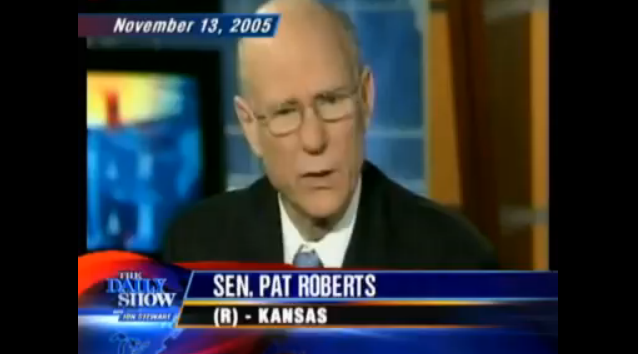
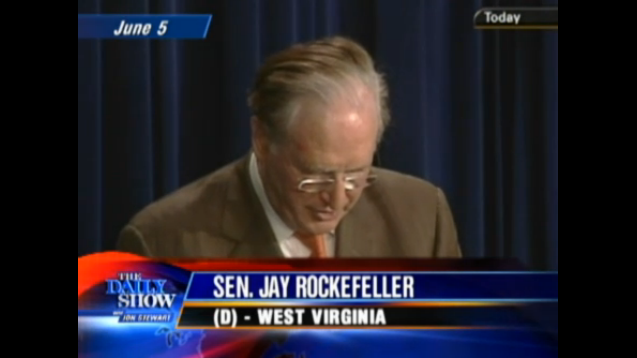
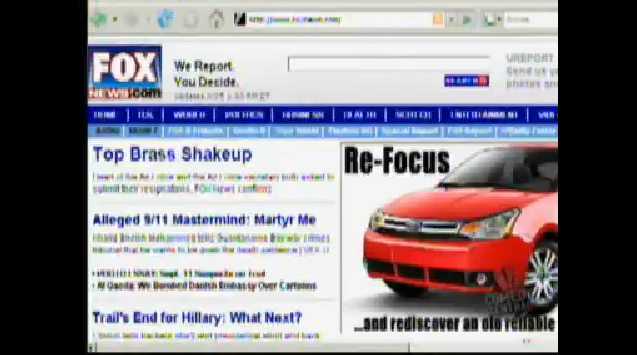
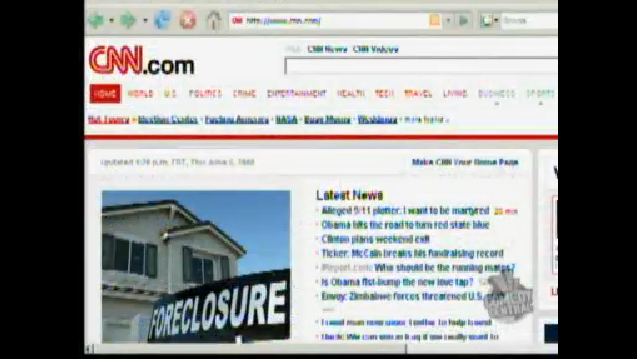
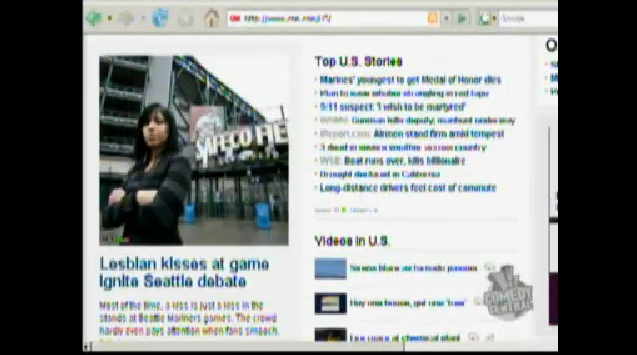
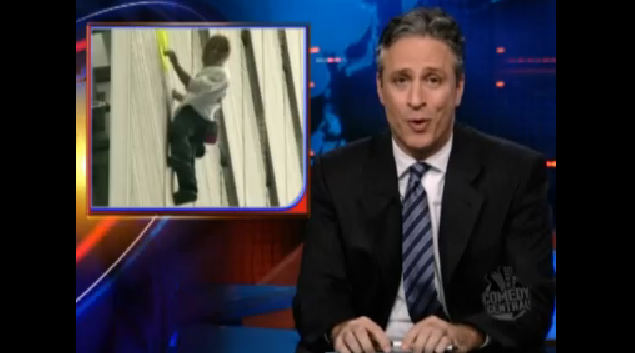
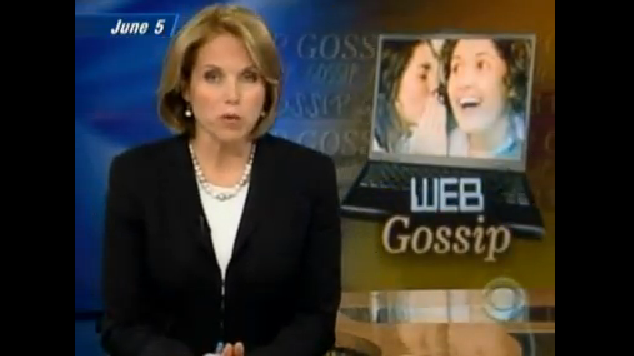
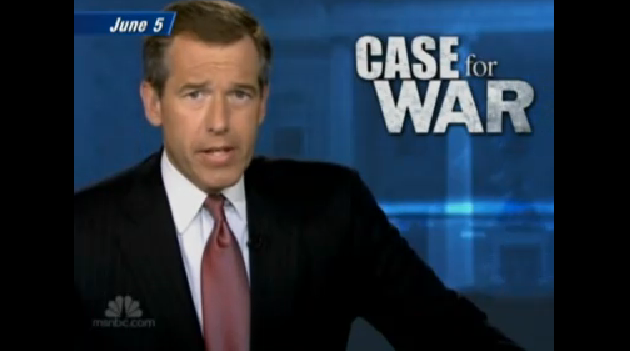















No comments:
Post a Comment